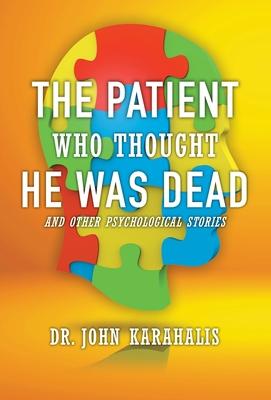The stories that are contained in this book are all real stories that have occurred over my 35 years of working as a Psychologist in a variety of settings from pre-school programs to psychiatric hospitals. Some of the stories are humorous, some are tragic. All names and any identifying information, to protect the confidentiality of the aforementioned, has been changed but the stories are as accurate as I can recall them. The purpose of this book is not to stigmatize or stereotype those with cognitive, behavioral or mental disorders but to realize that their stories are very often not atypical after all. We can all empathize that our life no matter how difficult may pale in comparison to what many others in our earthly world have to contend with on a daily basis. As I often tell my college students: "I hope the worst day of your life has already been played out in your life. I hope the worst thing that can ever happen to you has already happened. But please try to remember that the worst day of your life, no matter how horrific it may have been, might be someone else best day of their life. For even though you have dealt with difficulty and tragedy in your life, you still have a warm bed to sleep in, a roof over your head and people who love and care for you. That's not a guarantee for everyone. For some of those living today, each day is a struggle to survive. Where to sleep, food to eat, avoiding being victimized by society." I like to dedicate this book to all of the survivors past and present who despite the struggles, made it through the storm and came out the other side stronger and wiser.

The Patient Who Thought He Was Dead: and Other Psychological Stories
The stories that are contained in this book are all real stories that have occurred over my 35 years of working as a Psychologist in a variety of settings from pre-school programs to psychiatric hospitals. Some of the stories are humorous, some are tragic. All names and any identifying information, to protect the confidentiality of the aforementioned, has been changed but the stories are as accurate as I can recall them. The purpose of this book is not to stigmatize or stereotype those with cognitive, behavioral or mental disorders but to realize that their stories are very often not atypical after all. We can all empathize that our life no matter how difficult may pale in comparison to what many others in our earthly world have to contend with on a daily basis. As I often tell my college students: "I hope the worst day of your life has already been played out in your life. I hope the worst thing that can ever happen to you has already happened. But please try to remember that the worst day of your life, no matter how horrific it may have been, might be someone else best day of their life. For even though you have dealt with difficulty and tragedy in your life, you still have a warm bed to sleep in, a roof over your head and people who love and care for you. That's not a guarantee for everyone. For some of those living today, each day is a struggle to survive. Where to sleep, food to eat, avoiding being victimized by society." I like to dedicate this book to all of the survivors past and present who despite the struggles, made it through the storm and came out the other side stronger and wiser.